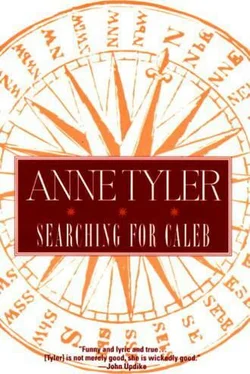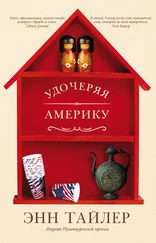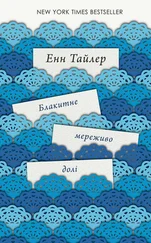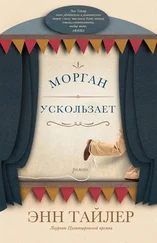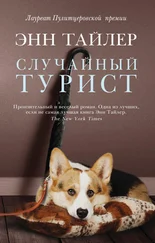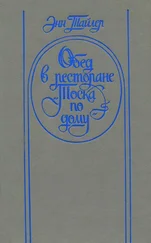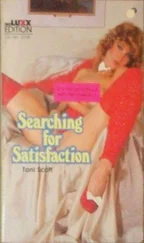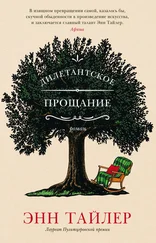Several times a week, his cousin Justine would come bringing irritating, endearing gifts — a ridiculous pair of slippers, his striped bedspread from home, once his old blue toothbrush with Ipana caked in the bristles. Whenever he opened the door to her he felt deeply happy to see her thin, sweet face and her streamered hat, but before she had been there five minutes he wanted to throw her out. She had such a gift for saying the wrong thing. “Can I tell the cousins where you are? They want to come, too.”
“No. God.”
“Do you need any money?”
“I can take care of myself, Justine.”
“Grandfather gave me some to bring to you.”
“Tell him I can take care of myself.”
“But I can’t give it back to him, Duncan. He was so — he just pushed it into my hand all clumsy and secret. He pretended he wasn’t doing anything.”
“Change the subject.”
“Like in the old days when he gave out horehound drops.”
“Justine, I wish you would go now.”
She always went. But she always came back, too, and when she stood in his doorway again a few days later he was all the more touched by her stupid, comical persistence. From earliest childhood she had been his favorite cousin — maybe because she was a little more removed, a Mayhew, a Philadelphian, not quite so easy to know. But he was surprised that she would brave his dark stairs and his rudeness. Here she had always seemed so docile! He made a special effort for her, smoothing the spread and offering saltines from his roach-proof tin and suggesting she take her hat off, which of course she would not do. “Justine, I’m glad you came back,” he said.
“Why, thank you.”
“You may get on my nerves sometimes but at least you show things, you say things outright, you don’t feel it’s a sin. You were the only one to ask me not to go, the Sunday I left.”
“But Grandfather told me to do that,” Justine said.
Right away she had managed to get on his nerves again.
She always had an answer. She drove him up a wall. He reached the point where he would turn on her the moment she entered, letting loose a flood of arguments that he had been storing up. “You know what they’re like?” (There was no need to say whom he meant.) “You know who they remind me of? People choosing a number on a radio dial. The way they ignore anything that isn’t Peck, like flicking past stations that don’t concern them, just a split second of jazz or ballgames or revivalist ministers and they wince and move on, and settle finally on the one acceptable station that plays Mantovani. Nothing uncomfortable, nothing extreme, nothing they can’t tolerate . . . ”
“They tolerate you at the Sunday dinner,” Justine said. “Really you were as rude as can be and they tried to see your side of it and act reasonable. Who are you to say they can’t talk about eggshells?”
Duncan said, “Nothing outside the family matters. Nobody counts if they’re not Pecks. Not even neighbors, not even Sulie. Why, Sulie’s been with us since our parents were children, but does anybody know her last name?”
“Boudrault.”
“Hmm?”
“She married old Lafleur Boudrault, the gardener.”
“Oh, details,” said Duncan.
“He died in nineteen forty.”
“Little church-lady Emily Post details and nothing underneath. And you’re just like them, Justine, you always will be. Who asked you to come here and clutter up my life?”
But when she was gone, her smell of warm grass hung in the air and the memory of her imperturbable Peck face. At night her chilly little voice ran on and on, arguing, reasoning, imposing logic, even in his dreams. He would wake and punch his flattened pillow and toss beneath the spread that carried her smell too, even from its brief stay in her arms. He wished she were there to argue with; then he wished she were there to apologize to; then he wished she were there to lay her long cool body next to his on the sagging mattress and hold him close all through the deep, steamy Baltimore night.
* * *
Justine was not herself; everybody noticed it. Even summer vacation didn’t seem to relax her any. She was strange and distant with her family. She began watching her aunts and uncles in a measuring way that made them uncomfortable. “What’s the matter with her?” her father said once, but his in-laws only smiled blankly; they did not believe in asking too many questions.
It seemed that they accepted Duncan’s absence now. Sometimes when Justine came back from visiting him they would forget to ask how he was. Or they would say, “See Duncan, did you?” and go on about their business. Even Aunt Lucy appeared resigned. But one day in August, a particularly hot Saturday morning, Aunt Lucy appeared on Great-Grandma’s front steps with a small electric fan. Justine was drying her hair outdoors and reading Mademoiselle . “Justine, dear,” said Aunt Lucy.
Justine looked up, with her mind still on her magazine. Her aunt wore the expression of a lady heading calm and smiling toward disaster.
“Justine, this is for Duncan,” Aunt Lucy said.
“What? Oh, a fan. He could use it.”
“Oh, I knew it! I’m so glad I — well, whenever you go to see him, then. Are you going today?”
“Today I’m going on a picnic with Neely. Tomorrow I might, though.”
“Don’t you think you might stop by this morning? Wouldn’t you be able to work it in?”
Aunt Lucy’s smile hesitated.
“Of course I could,” Justine said, and she took the fan from her aunt’s shaky hands.
It was not until she had parked in front of the bookshop that she noticed the little envelope dangling from the fan’s grid.
Duncan’s room was blasting with heat and he was so hot he seemed to have been oiled. He wore a grayish undershirt. His trousers were creased and limp. “Oh, it’s you,” was all he said, and then he sat back down on his bed and wiped his face with his balled-up shirt.
“Duncan, I brought you a fan from your mother.”
“You’ve been telling her about my room.”
“No, I haven’t. She just guessed you would need this.”
“What’s that in the envelope?”
“I don’t know.”
He broke the string that tied it and pulled out a folded note. First he read it silently and then he groaned and read it aloud.Dear Duncan,I am taking the liberty of sending you the fan from my bedroom, now that it is so warm.Everyone is well although I myself have had a recurrence of those headaches. Just a little tension, the doctor says, so I keep my chin up!Your father has been working very . . .
“What about the fan from my room?” Duncan said. “There is one, you know.”
“She gave you her own to show she cares, she didn’t know how else to put it,” said Justine.
“None of them do. Oh, you can tell who she married into. She’s just like all the rest of them now. Too little said and too much communicated, so that if you fight back they can say, ‘But why? What did I do?’ and you won’t have any answer. It all takes place in their secret language, they would never say a thing straight out.”
“But that’s tact. They don’t want to embarrass you.”
“They don’t want to embarrass themselves,” Duncan told her.
She said nothing.
“Isn’t that right?”
“Probably it is,” she said. “But so is the other. There isn’t any right and wrong. I keep looking at them, trying to decide. Well, everything you say is true but then so is everything I say. And what does it matter, after all? They’re your family.”
“You know who you sound like? Aunt Sarah, Justine. You’re going to grow up an old maid. Or you’ll marry a stick like Neely and have him change his name to Peck. I can see it coming. I can see it in that flat straight face of yours, just watch.”
Читать дальше
